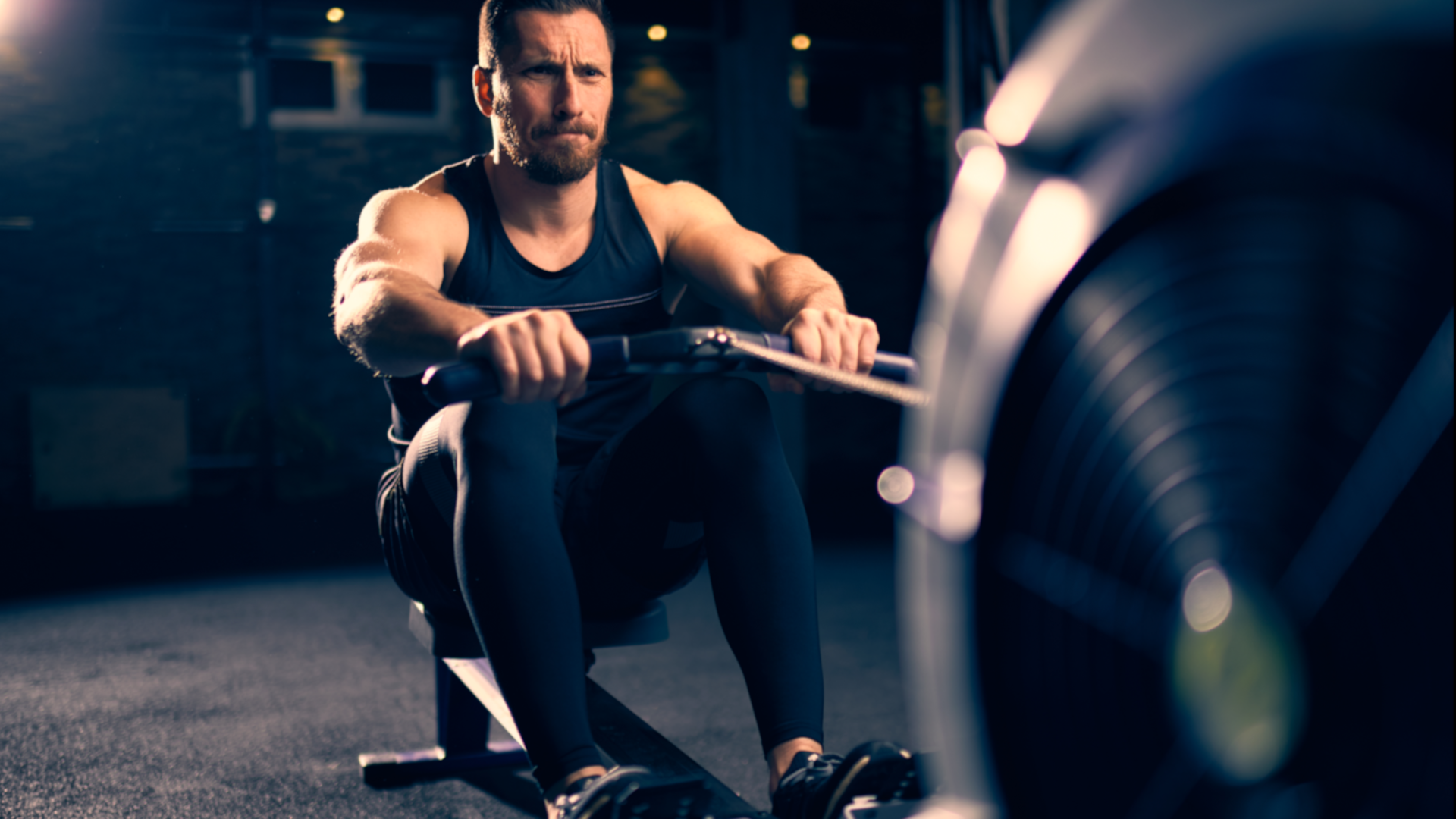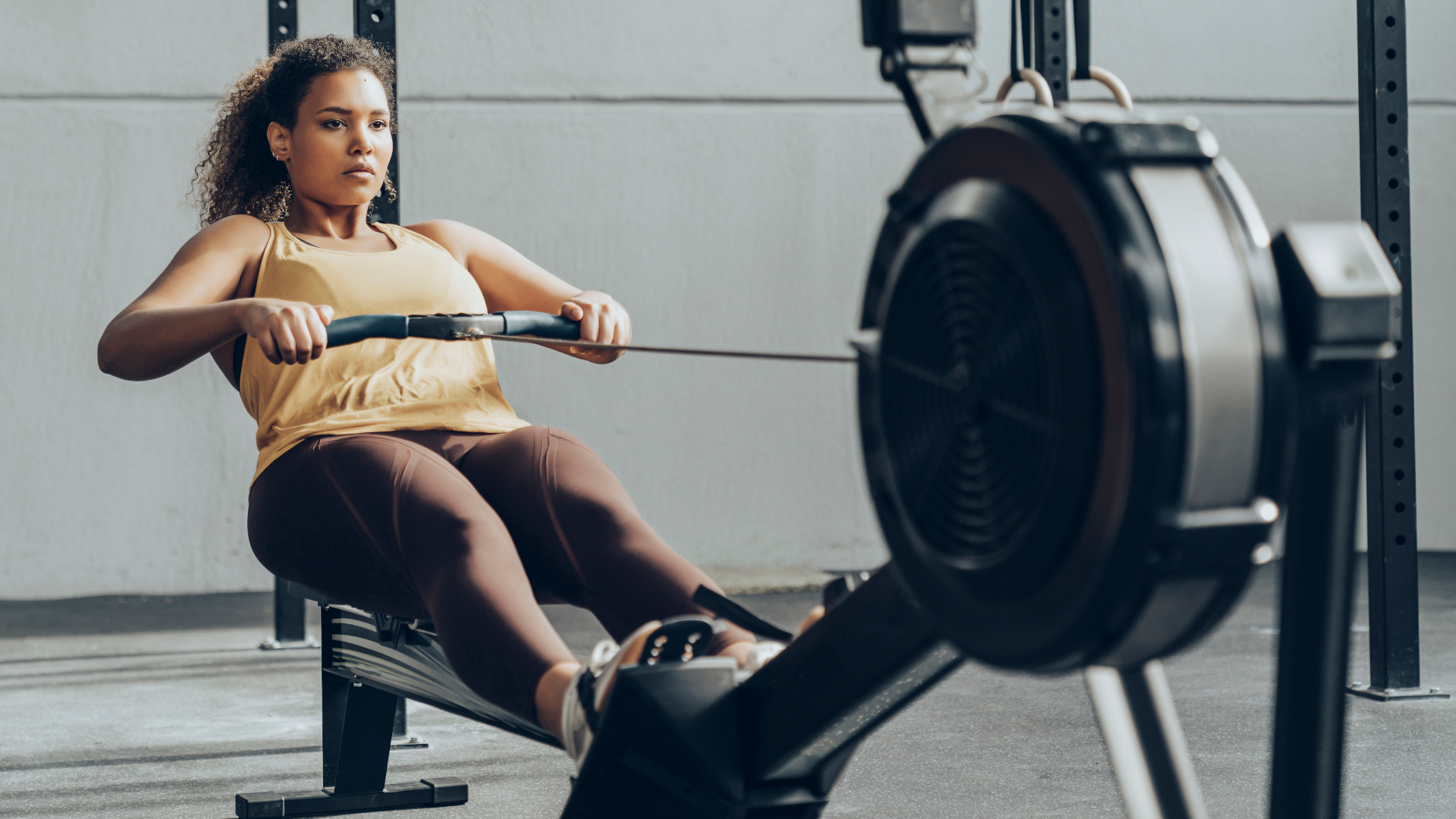
Although the rowing machine is a standard in every gym, it’s something I gladly avoid (you’ve probably heard that weightlifters don’t do cardio). But, with my first HYROX event a few months away, and a 1000 metre row being one of the challenges, I figured I needed to start practising. Fast.
It was just my luck that my Editor happened to drop Mat Frasers ‘Hard Work Pays Off’ book onto my desk the following week. If you’ve never heard of Mat Fraser, where have you been? He just so happens to be the only athlete to have won five CrossFit Games in a row, consecutively, claiming the title as ‘The Fittest Man On Earth’. Fraser can do a 1000 metre row in around 2:54 seconds. He retired after 2020, but his book was the gateway to his success and secrets. Could his rowing tips help me, a typical weight lifter, row like a CrossFit athlete? Read on to find out.
Testing Mat Fraser’s rowing technique
My general 1000 metre row totalled at 4:42 seconds. I didn’t think it was horrific for someone who’d walked past the Concept 2 (one of the best rowing machines) smugly for years, but I knew I needed to be quicker.
On my second attempt, the following week, I began to start implementing Fraser's techniques. Initially, I’d been tightening the strap across where my toes started, but Fraser says to tighten it around the widest part of your foot (the ball). This helped me feel much more secure on the machine as a whole. Next was the leg drive, which Fraser says is the most important step. “For this keep your torso still and your arms relaxed, and use the heel of your foot to push away from the rower,” he writes in his book. As someone with pretty strong, but short legs, I think I was a little too enthusiastic with this, because every time I thrust myself back the force would almost jerk me forwards again and one time I almost flew myself off the side of the seat. Fraser says you want to use every last bit of energy in your legs before leaning back and pulling with your arms, where you should squeeze your shoulder blades together. “It seems simple” he says “but it took me hundreds of hours to master”. He wasn’t kidding either. My row took seven seconds longer (4:49 seconds). I think it’s because there was a lot to think about when it came to piecing the movement together. Spoiler alert: this didn’t continue.

The third time before I set my timer I went through the check list in my head: relaxed straight arms, don’t grip the handle too tight it will fatigue you, drive through the heels of the feet, make the arm pull your last movement and squeeze your shoulder blades together. I still struggled with leaning back and using my back muscles to help pull the handle, instead of my arms, but my row time came out at 4:39 seconds, so I can’t really complain.
Before my last attempt, I decided to watch a quick YouTube video of Mat and Noah Ohlsen (another CrossFit athlete who was Fraser’s rival) complete their 1000 metre row challenge. I noticed Fraser had an extremely wide grip of the row handle (as did Noah), but my grip had been so narrow. I think this was the reason why I’d struggled to use my back during my arm pull and that it was so arm-dominant. Not only did I now feel stronger throughout the movement, and my arms less fatigued, I managed to hit a personal best of 4:28 seconds, a decrease of 14 seconds over a period of three weeks. Imagine when I start practising every other day? Matt Fraser may no longer be competing at the CrossFit Games, but the legend certainly lives on.




.jpg?w=600)


